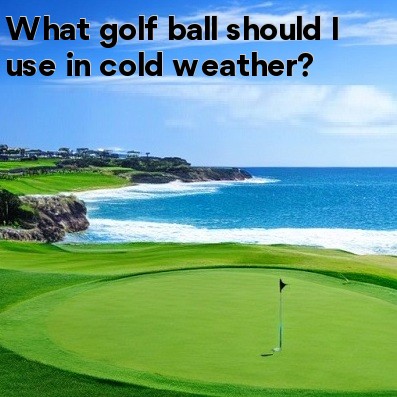
In Golf, What Golf Ball Should I Use in Cold Weather?
Golfers who brave the cold weather to play their beloved sport know that it can be quite a challenge. The icy temperatures can affect various aspects of the game, including the performance of the golf ball. While most golfers focus on their swing and technique, it's important not to overlook the impact that cold weather can have on the ball's distance, feel, and overall performance. So, what golf ball should you use in cold weather? Let's find out.
Consider a Low Compression Ball
When playing in cold weather, it's advisable to switch to a golf ball with a lower compression rating. Compression refers to the density of the ball, and lower compression balls are softer. These balls compress more during impact, resulting in increased energy transfer and better distance, especially in colder temperatures. Consider using a golf ball with a compression rating of 80 or lower.
Choose a Ball with a Softer Cover
Another important factor to consider is the ball's cover. In cold weather, the ball tends to become harder, making it more challenging to get optimal performance and feel. Opt for golf balls with a softer cover layer, as they tend to have better control and feel in colder conditions. Balls with urethane covers are a popular choice, as they offer excellent spin and feel regardless of the temperature.
Pay Attention to the Ball's Color
The color of the golf ball can also play a role in cold weather conditions. It's recommended to choose a high-visibility ball that stands out against the white background of snow or frost. Brightly colored golf balls, such as yellow or even neon options, are easier to locate and track in the winter landscape.
Consider a Ball Designed for Cold Weather
Some golf ball manufacturers offer specific balls that are designed to perform better in colder climates. These balls often have advanced features that help combat the challenges posed by low temperatures. They may have enhanced compression, a softer core, or a more durable cover to withstand cold conditions better. Look for golf balls specifically labeled as suitable for cold weather play.
Personal Preference Matters
While it's essential to consider technical factors when choosing a golf ball for cold weather, personal preference should not be overlooked. Each golfer has their unique swing characteristics and preferences. It's a good idea to experiment with different balls and find one that suits your game and feels comfortable in cold conditions.
Remember to Store the Balls Properly
Lastly, it's crucial to store your golf balls properly, especially in cold weather. Extreme temperature fluctuations can negatively impact the ball's performance and durability. Avoid leaving your golf balls in your car trunk or a cold garage for an extended period. Instead, keep them at room temperature or use a golf ball warmer to ensure optimal performance when you're ready to tee off in the cold.
In conclusion, selecting the right golf ball for cold weather can significantly improve your performance and enjoyment on the course. Opt for a low compression ball with a softer cover, and pay attention to the ball's color for better visibility. Consider using a ball specifically designed for cold weather if available, but don't forget to take your personal preferences into account. Properly storing your golf balls is also essential. With the right combination of technical features and personal preference, you'll be ready to conquer the cold weather and continue mastering your golf game.





